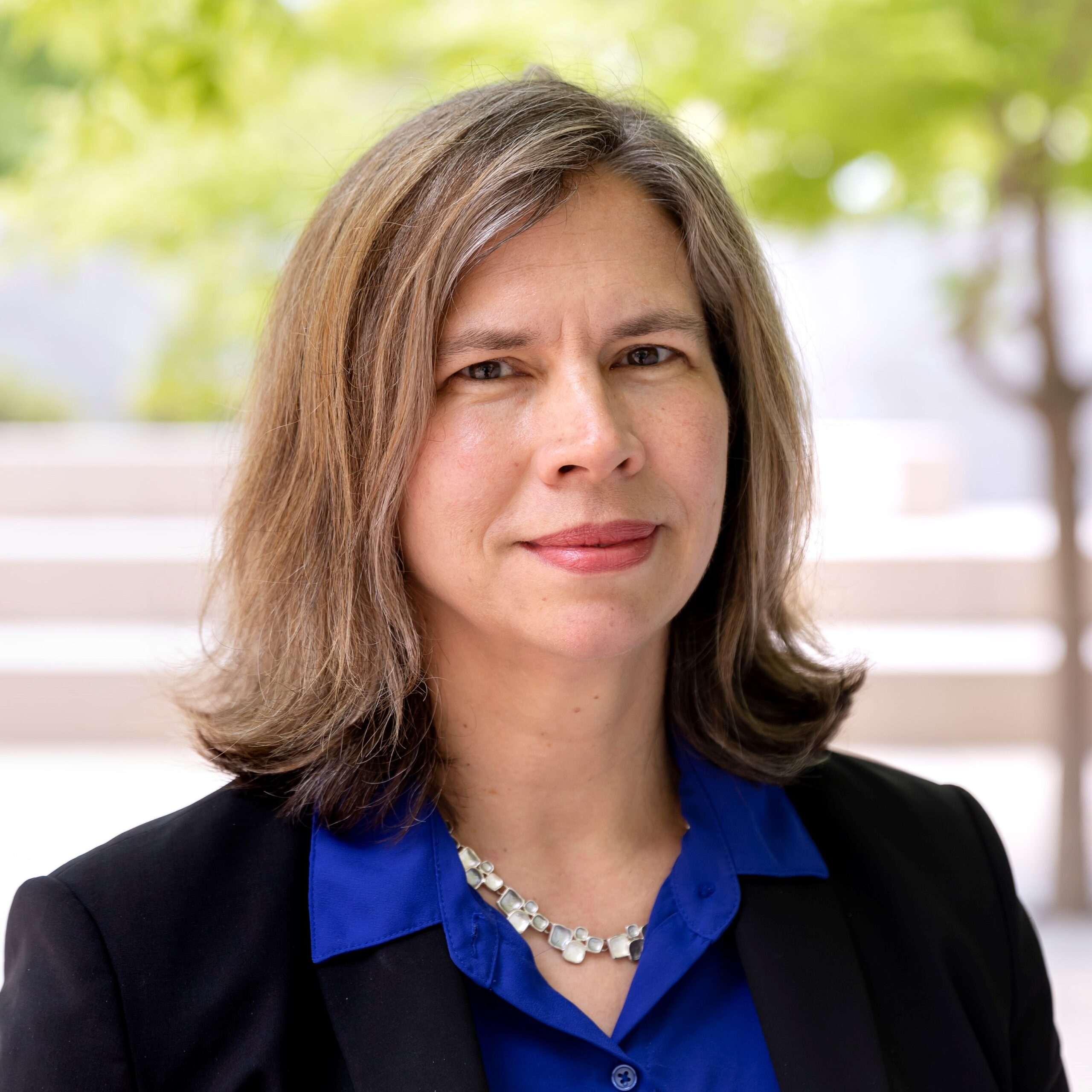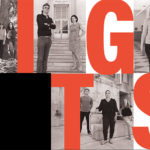Andrea Roth joined the Berkeley Law faculty in 2011, after 3 years as a Grey Fellow at Stanford and 9 years as a public defender in Washington, D.C. Her research focuses on how pedigreed concepts of criminal procedure and evidentiary law work in an era of science-based prosecutions. Her recent publications include “The Embarrassing Sixth Amendment” (forthcoming Cal. L. Rev. 2023); “The Lost Right to Jury Trial in ‘All’ Criminal Prosecutions (Duke L.J. 2022); and “Machine Testimony,” 126 Yale L.J. 1972 (2017). She is also a co-author on a leading Evidence casebook (Sklansky & Roth). In 2021, she was appointed chair of the Legal Resource Task Group of the National Institute of Standards and Technology’s Organization of Scientific Area Committees and is one of several faculty co-directors of the Berkeley Center for Law and Technology. She is also an elected member of the American Law Institute. She also currently chairs the Berkeley campus’s Committee on Teaching.
In 2019 Roth was one of four recipients of the campus-wide Distinguished Teaching Award. In 2017, she received the campus-wide Prytanean Faculty Award, given to one pretenure woman faculty member. In 2016, she received the law school’s Rutter Award for Teaching Excellence. She has also received teaching awards from Women of Berkeley Law and the Berkeley Criminal Law Journal.
Education
B.S./B.A., Mathematics and Political Science, University of New Mexico (1995)
J.D., Yale Law School (1998)
Andrea Roth is teaching the following course in Spring 2024:
• 231.1 sec. 001 - Criminal Procedure - Adjudication
Courses During Other Semesters
| Semester | Course Num | Course Title |  Teaching Evaluations Teaching Evaluations | Fall 2024 | 241 sec. 002 | Evidence | Fall 2023 | 231 sec. 001 | Criminal Procedure - Investigations | View Teaching Evaluation | 241 sec. 001 | Evidence | View Teaching Evaluation |
|---|
‘A Superb Teacher and a Great Scholar’: Professor Andrea Roth Awarded New Faculty Chair
Roth, a groundbreaking scholar of criminal law and evidence in an increasingly technology-driven world, is the first Barry Tarlow Chancellor’s Chair in Criminal Justice.
Cutting to the Chase: Barbershop Launches 2L Dominick Williams to Prestigious Journal’s Top Role
Williams has parlayed working at Lord Tony’s in Sacramento to becoming editor in chief of the California Law Review, where he’s pushing to expand the journal’s accessibility and reach.
Gov. Newsom sends state prosecutors to Alameda County DA’s Office, following crime spikes
Andrea Roth, Berkeley Law professor of criminal justice, thinks the current decision to send prosecutors to Alameda County is likely not due to any shortage of prosecutors. Instead, she sees the action as state-oriented. “An alternative possibility is that state officials are understandably concerned about reported crime rates in Oakland for a variety of reasons and have decided to intervene, but don’t want to be seen as overreaching,” said Roth.
He was assaulted on S.F.’s streets. Why did police make him file a citizen’s arrest?
“We didn’t have these professional police forces at the time the Constitution was written, so we did really rely a lot more on citizens for certain types of law enforcement,” said Professor Andrea Roth.
New evidence may back Menendez brothers’ sexual abuse claims. But can it free them?
Professor Andrea Roth discusses new evidence in the Menendez brothers’ case. “If the trials were held today and included Erik Menendez’s letter to Cano and Rosselló’s allegations against Jose Menendez, the second trial may have played out differently,” said Roth.
Standing Firm: How Berkeley Law Faculty and Students are Stepping Up to Advance and Defend Basic Rights
With basic rights in peril at home and around the world, the law school community is answering the call.
Forensic scientists are generally whiter, less diverse than US population they serve, study says
Andrea Roth, a Berkeley Law professor whose research focuses on the use of forensic science in criminal trials notes that some “biometric” techniques had their beginnings in racism or eugenics to try to identify “criminal” or “abnormal” biological attributes. The man sometimes called the father of fingerprinting, Sir Francis Galton, is known for being an unapologetic racist, among other examples, Roth added.
Educator Extraordinaire: Andrew Bradt Receives UC Berkeley Distinguished Teaching Award
Students and colleagues hail the Berkeley Law professor, one of just five campus-wide winners this year, for his tireless preparation and passionate dedication.
Police Search of Rape Victims’ DNA Tests Meaning of Consent
Professor Andrea Roth cautions that, if DNA consent forms use overly broad language that says the DNA can be used by law enforcement, some courts may not agree it’s a Fourth Amendment violation to search it for an unrelated investigation
A Rape Survivor Gave Police Her DNA. They Linked Her to Another Crime
Professor Andrea Roth discusses the controversial case involving SFPD use of DNA evidence from a rape kit to link the victim to another crime
Teaching Tech: Berkeley Law Clinic Arms Public Defenders with Digital Tools
The Samuelson Clinic’s Megan Graham has trained more than 1,000 public defenders in three years on how to litigate cutting-edge technology issues.
Killer eludes police for 31 years – how did one woman find him in two hours?
Professor Andrea Roth says genetic genealogy can be an effective tool for the public good, but cautions that most states have no restrictions on its use
Dominic Foppoli investigation: Before raid of ex-mayor’s home, woman came forward with new assault allegation
Professor Andrea Roth comments that investigators may view the 2002 allegation as supporting evidence for another allegation in regards to the sexual assault accusations against former Windsor Mayor Dominic Foppoli
Community reels after shootout involving ex-cop: ‘Is this what we want Oakland to be?’
Orange County Prosecutors Operate “Vast, Secretive” Genetic Surveillance Program
Professor Andrea Roth discusses Orange County’s “spit and acquit” program, about which she’s researched and written a paper
Podcast: Can We Still Confront Our Accusers?
Professor Andrea Roth appears on Legal Talk Today to discuss the 6th Amendment and virtual court
Why Are Prosecutors Keeping a Huge, Secretive DNA Database in Orange County?
Professor Andrea Roth discusses Orange County’s forensic DNA database and says it is the largest in the country never authorized by a legislature
Election Implications: Professors Describe What to Expect in Various Areas of Law
Berkeley Law experts describe what to expect — depending on who wins the presidency and which party controls the Senate — from health care and the environment to immigration and criminal justice.
Prop. 20: Should California’s DNA bank expand to shoplifters, opioid offenders?
Professor Andrea Roth discusses CA Prop 20, saying putting more money into collecting DNA is a a zero-sum game
In Special Mini Courses, Berkeley Law 1Ls Dive Deep and Build Relationships — Remotely
A special slate of one-credit classes is helping first-year students and professors get to know one another during an unprecedented semester.


















